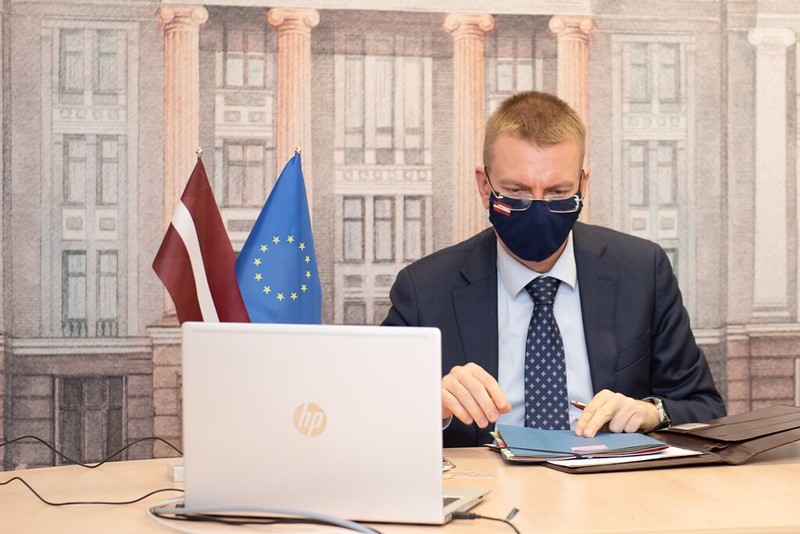On 19 November 2020, the Minister of Foreign Affairs, Edgars Rinkēvičs, took part in an informal video-conference of the European Union’s Foreign Affairs Council. In the introductory section of the meeting, the participants discussed the U.S. election results, developments in Belarus, Nagorno-Karabakh, the east of the Mediterranean and other crisis regions. The Ministers discussed the EU’s support for the strengthening of multilateralism, as well as sharing opinions on the Middle East Peace Process and the EU-Palestinian relations.
Concerning the situation in Belarus, Edgars Rinkēvičs recognised that the situation is deteriorating and violence against protesters is increasing. The Minister underlined that pressure should be increased on Belarusian officials and work should continue on expanding the EU’s sanction list until improvement in the political situation occurs. At the same time, the EU should continue providing support for Belarusian civil society, the independent media and educational programmes.
In the ministers’ discussion on multilateralism, the need for actively cooperating with the EU’s partners and likeminded countries was emphasised with a view to strengthening a rules-based international order. It is vital for the EU to promote international cooperation in the areas such as joint action to mitigate the consequences of the COVID-19 pandemic, fulfilment of the climate agreements, and the reform process in international organisations – the United Nations, the World Trade Organisation, and the World Health Organisation.
The meeting also included a discussion with the Palestinian Foreign Minister, Riyad Al-Maliki, at which the ministers shared their views on the Middle East Peace Process, recent developments in Palestine and the state of play in the EU-Palestine dialogue. In a coordinated statement, the Foreign Ministers of the three Baltic States and Poland expressed support for the resumption of direct negotiations on the basis of a two-state solution in line within internationally recognised parameters.
In this context, the participants welcomed the normalisation of relations between Israel and a number of the Arab states and they expressed hope that this will also contribute to the Middle East Peace Process by curbing the plans for the annexation of Palestinian territories, which would undercut the possibilities of a renewal of direct talks. The Ministers called for seizing this opportunity and taking further steps to build trust between the parties to the conflict. The Ministers also welcomed the election planned in Palestine in the nearest months, which will help strengthen Palestinian democratic institutions, and they also expressed support for the EU-Palestinian dialogue.





